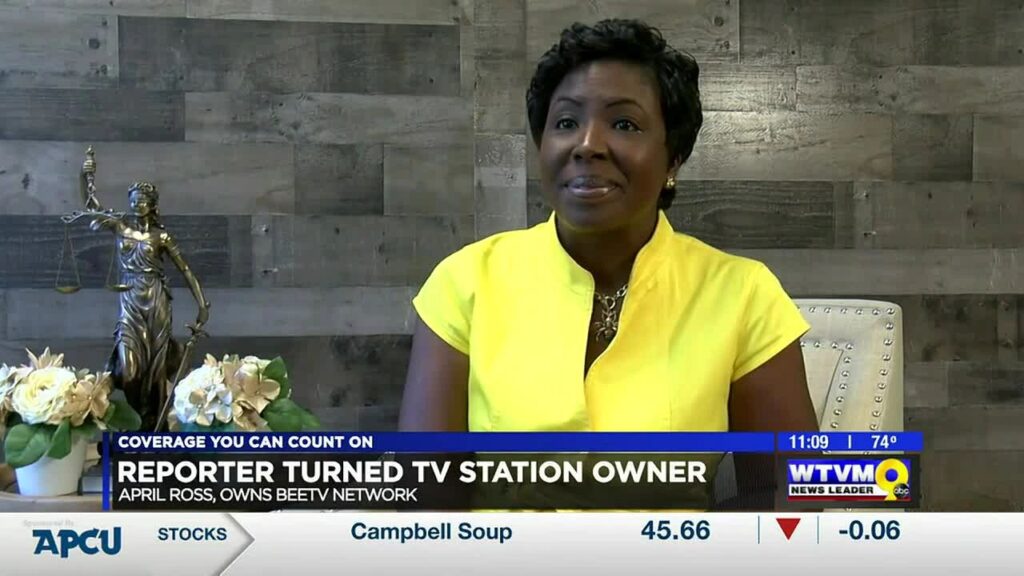News
Meet The Pivot Fund’s first grantees
July 12, 2022

The Pivot Fund’s first grantees are Georgia news organizations serving diverse communities.
We started by asking community members where they find reliable information. That led us to the news organizations that have their trust.
The Pivot Fund has selected seven Georgia news organizations that reach Black, Hispanic, and Asian-American audiences to receive a combined $2 million in our first-ever round of grants. All led by people of color, the organizations range from scrappy, nontraditional one- or two-person operations in rural areas to the state’s largest Black-owned radio network.
Several rely primarily on social media to post news content, notably Facebook. Most provided vital health news to their communities during the pandemic. All are buffers against disinformation, which tends to be rife in communities lacking trusted news and information sources.
The grantees are:
- BEE TV Network, LaGrange, GA. CEO April Ross started out reporting and streaming community news on Facebook and ended up owning a cable TV station that can be accessed by 600,000 Spectrum cable customers. In LaGrange, it’s cited by both Black and white residents as their go-to information source, unifying the demographically divided city around a common set of facts.
- Pasa La Voz Savannah, Savannah, GA. A Facebook page with close to 15,000 followers, founder Elizabeth Galarza covers everything from crime to community events to practical information to help Spanish-speaking immigrants and their children navigate past disinformation and succeed in American society.
- Notivision, Warner Robins, GA. A bridge between Georgia’s growing Hispanic population and local businesses, organizations, and local government. CEO Monica Pirela – a former journalist in Venezuela – and Jay Cruz, editor and cameraman, primarily publish on Facebook and Instagram, then syndicate on Spanish-language radio, sharing news information with radio stations in Atlanta, Augusta, and South of Georgia.
- Davis Broadcasting + The Courier Eco Latino, Columbus, GA. Georgia’s largest and 36-year-old Black-owned radio network, with stations in Columbus and Atlanta serving predominantly African American and Hispanic audiences with music, culture, community news, and sports. The Courier Eco Latino launched as a bilingual newspaper in 2005 to serve Columbus’s African-American and Latino communities. The Courier Eco Latino became a one-man, online-only operation during the pandemic. Yet President/Publisher Wane Hailes made the most of it, launching a streaming channel called CEL TV on YouTube and collaborating with Davis Broadcasting on political forums and events. That news collaboration will expand as part of the grant.
- Georgia Asian Times + Tomorrow Pictures, Atlanta, GA. The digital publisher and the award-winning video production company will collaborate to report and produce a documentary on the Burmese immigrant community, who, like many others, settled initially in the Atlanta suburb of Clarkston but are now following chicken processing and warehouse jobs in rural Georgia.
The seven organizations will receive direct grants and consulting support tailored for each, to help them increase revenue, develop digital and reporting capacity, and expand audiences. The combined value of the grants and consulting will total $2 million. Each organization will be eligible for additional support in years two and three as they move toward sustainability.
The Pivot Fund plans to invest $6 million in Georgia news organizations over three years, and that’s just the start.
Meet the Pivot Fund’s staff and advisors
The Pivot Fund aims to raise and invest $500 million nationwide in independent, community news organizations led by Black, Hispanic, Indigenous, and other people of color who are trusted sources for the communities they serve, bringing proven technology, business practices, and key staff positions to organizations that have the trust of their communities.
Our strategy targets a longstanding, multi-dimensional problem. The decades-long decline of the newspaper industry has created “news deserts,” areas with little or no local coverage, across wide swaths of America. The problem is acute in rural communities. And historically, mainstream news outlets ignored or misrepresented communities of color.
A local information vacuum is often filled with hyper-partisan national news and misinformation, for example, about COVID vaccines. Communities of color are prime targets for mis- and disinformation, not only on social media but also in print ads, such as those pushing dubious legal services to immigrants.
Dotted across these news deserts are organizations led by people of color who have earned the trust of their audiences, often only publishing on social media. They are largely unknown by national media companies and philanthropic funders but are poised to grow rapidly with business and newsroom support.
Because many don’t look like traditional news organizations, they have been overlooked by philanthropic funders, who are increasingly turning to journalism as a vital bulwark for democracy. As a result, funders may be missing a revolution in local journalism.
This first round of investments underscores the breadth of impact of trusted local journalism. Nearly all the grantees played vital roles in disseminating health information during the pandemic, often partnering with state and local health authorities; some help immigrants avoid fraudulent legal services while providing useful information to help them integrate into life in the United States; most provide practical civic information during election cycles.

“BEE-TV isn’t just a source of news and information for the African American community. They’ve transcended,” Paul S. (Tripp) Penn III, president of the Callaway Foundation, Inc. in LaGrange, told me. “They’re an important source of information for the entire region. They serve a number of counties in addition to Troup.”
These organizations are the connective tissue in their communities. Up to now, most have been doing it on a wing and a prayer. Going forward, we expect to see them grow as businesses and as trusted sources to inform and connect their communities.